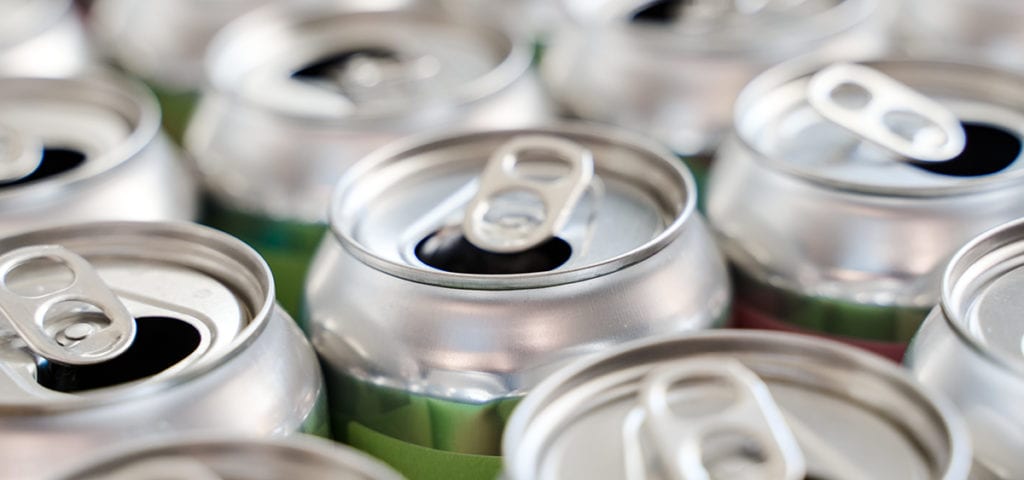A recent report found that aluminum can liners used in the making of cannabis-infused beverages may significantly deteriorate the potency of THC drinks.
Aluminum Cans May Reduce THC in Infused Beverages

Empty aluminium soft drink, beer can closeup.
Full story continued below.
Advertisement
In 2020, Canadians rejoiced that they would finally be able to purchase cannabis edibles at adult-use dispensaries and producers were racing to have the most desirable product on the market. In the fall of 2019, Canopy Growth announced its ‘2.0 portfolio’ which included 13 cannabis-infused drinks but, as we approach the spring of 2020, consumers are still waiting for the products to be made available for sale.
With licensed Canadian cannabis companies backed by Big Alcohol brands like Constellation Brands, Molson Coors, and Anheuser-Busch InBev, it is surprising that more infused beverages haven’t made it to market. But, according to a recent Yahoo Finance report, it appears that aluminum cans can actually ruin the potency of infused cannabis beverages, which could explain the delay.
Epoxy, vinyl, acrylic, polyester, and oleoresin are all common coatings used as an inner lining for aluminum cans. This is due to the typically corrosive ingredients in beverages like energy drinks and colas; they’re also handy in beer cans to smooth the inner lining and keep carbon dioxide from escaping. However, the same inner lining that makes it possible to can soda, beer, and even vegetables is causing a major issue in cannabis products.
In cannabis beverages, nanoemulsion methods are used to break down oily cannabinoids into particles small enough that they will suspend in a beverage for equal dosing and product uniformity. This process will change the size of the molecule but the same original quantity of THC will remain.
Chemistry Ph.D. Harold Han, the founder and chief science officer of Vertsoa, told Yahoo Finance that he first noticed potency retention issues when working with Northern California beer subsidiary Lagunitas as they moved their Hi-Fi Hops cannabis drinks from cans to glass bottles. They decided to test can liners against two types of emulsions and noticed that both incurred huge potency losses. The theory is that nanodroplets of THC stuck to the inside liner of the can instead of being delivered with the can’s liquid contents.
This issue is a mammoth hurdle on the quest of bringing infused beverages to the market, especially with antsy investors behind the scene. Though the Canadian infused beverage market is projected to be worth $529 million annually, companies are focused on finding an aluminum solution instead of glass bottling, which is more expensive. The solution is not yet clear, but the aluminum can industry is unlikely to accommodate the cannabis beverage industry by dropping the liners.
Get daily news insights in your inbox. Subscribe
End